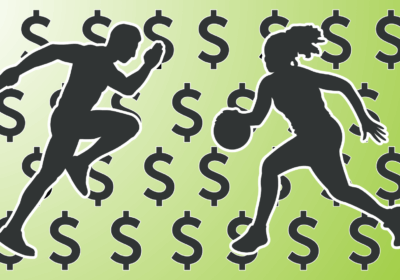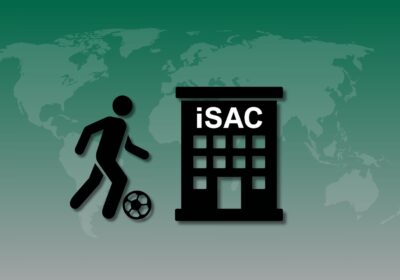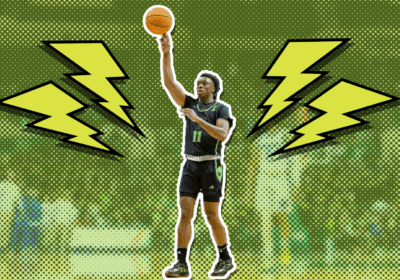Destigmatizing mental health problems for college athletes

USF offers its student athletes in-house mental health services. Dr. Lee Dorpfeld helps student athletes with a variety of problems that include balancing school, work and a social life. ORACLE FILE PHOTO
USF offers its student athletes in-house mental health services.
NCAA athletes are supported both physically and academically. Most Division I schools have special training facilities specific for college athletes. They’ve also got special academic services like tutors and study areas.
But college students are stressed out. In addition to the normal load of schoolwork and a social life, student athletes have to find a way to balance their athletic careers as well. It’s not always easy and, sometimes, these students can find themselves on the edge of a breakdown.
Suicide is the third leading cause of death for student athletes after motor vehicle accidents and medical issues. Recently, however, there has been a trend of professional and college athletes alike speaking out about mental health and taking steps to destigmatize mental illness throughout sports.
Dr. Lee Dorpfeld is the behavioral health coordinator for USF Athletics. USF was the first school in the AAC to introduce mental health services specifically for its athletes. He has worked in sports psychology since he earned his undergraduate degree.
This is his second stint working at USF. He previously worked in the private sector and at Arizona State University, creating a similar mental health program. Former USF Athletic Director Mark Harlan approached Dorpfeld with the idea to integrate a mental health position in USF Athletics.
“It’s been embedded,” Dorpfeld said. “It’s done really well for destigmatizing student athletes asking for support and assistance. The other thing is that it’s here, people pass by my office all the time…it’s seen as kind of a normal part of what we do.”
Dorpfeld’s office is in the corner of the Lee Roy Selmon Athletic Center where student athletes meet, study and spend a considerable amount of time.
“It’s not ‘oh they’re going to go see Dr. Lee, something is wrong with them,’” Dorpfeld said.
There are professional athletes and public figures who have spoken out about their own battles with mental health. Earlier this year, Kevin Love, a professional basketball player, wrote an article titled ‘Everyone Is Going Through Something’ where he detailed his struggle with mental health.
NFL Hall-of-Famer Brian Dawkins talked about his suicidal thoughts in his Hall of Fame induction speech. At one point, he said he was planning a way to kill himself so his wife could get his money.
Dorpfeld said that these professional sentiments have gone a long way in helping college athletes deal with their own struggles.
“What we see is, as the more well-known professionals come out and stuff, I think we’re seeing an increase in reporting of stressors in our college athletes for sure,” Dorpfeld said. “I think all of that goes a long way into destigmatizing these services across the professional levels as well as college sports. I hope it goes down, eventually, into high school and youth sports as well.”
Stress, according to Dorpfeld, is a catch-all term that can mean many different things to many different people. He said he mostly sees student athletes struggle with expectations and perfectionism.
Auggie Sanchez played linebacker for USF. He was a football team captain and a vocal leader for the Bulls. He sometimes got bogged down by losses, game prep and injuries, but said he always found a way to deal with those stressors. Now a graduate assistant coach at Florida State University, Sanchez sees firsthand how some college students handle stress.
“One thing I have learned quickly since I started coaching is that all kids are different when it comes to mental health,” Sanchez said. “One thing that is very common is the pressure kids put on themselves. They want to be the best that they can so they put so much pressure on themselves.”

Auggie Sancez played for USF and now coaches for FSU. As a coach, he sees how college athletes deal with mental health on a daily basis. ORACLE FILE PHOTO
But combating mental health issues isn’t a one-size-fits-all fix.
“You have to handle [different situations] all differently, but showing you care allows you to help them deal with the issues they are going through,” Sanchez said. “Mental health is real and I’m fortunate enough to be in a position to help.”
Ashley Wilson (track and field), Cameron Ruff (football), Madeline Barrow (women’s golf), and Gabriel Menescal (men’s soccer) all served on the USF Student-Athlete Advisory Committee last year. In April, these four students joined Dorpfeld at an AAC academic symposium.
Each student athlete spoke about a different part of mental health.
“They took their own unique perspectives on it and said why [mental health services at USF] works for them,” Dorpfeld said. “We went over time, nobody in the conference got up and left. Then, they had students from other schools come up and talk to them asking what it’s like and how it was so normal at USF.”
USF women’s soccer coach Denise Schilte-Brown agrees with the idea that mental health is a vital part of athletic performance.
“I think every athletic department would benefit from having a mental health specialist on staff,” she said. “The bigger issue for performance is how [student athletes] are balancing their life and when you have a clinical psychologist on staff, a mental health doctor, it’s huge for the kids.”
Some people think sports psychology is mostly visualization, where athletes picture themselves making the game-winning free throw, hitting a perfect golf shot or converting a last-second field goal. That’s part of it, but Schilte-Brown knows that there are more important parts to mental health for an athlete.
“Of course you’d love for them to do sports visualization,” Schilte-Brown said. “But I think all of that takes a backseat to having good sleep, a good diet, knowing how to manage your emotions and balance your time. When you can do those things, you can focus on sports-specific performance.”
Schilte-Brown thinks that social relationships are vital to mental health — relationships like friend groups, family, with coaches and even romantic relationships — they all go hand-in-hand with mental health.
Part of the problem with mental health, she said, is tied to the emergence of social media and cell phone usage.
“I feel like social relationships have changed,” Schilte-Brown said. “[Students] get in college and life becomes so centered on their phone and that’s created an environment where you don’t go anywhere…You can just post something and get the likes you need.”
Some of what Dorpfeld does is helping athletes become more well-rounded. While sports are obviously a major part of all their lives, he said there are students with a variety of interests. He says having friends outside of their teams and connecting with their families and other organizations help expand the students outside of their title of being a student athlete.
Though there has been an increase in awareness and services through the country to help deal with mental health issues, Dorpfeld said there is still plenty of work to do and that helping people is still a long process. Making mental health a normal part of being an athlete at USF, or any school, is a step in the right direction.
“It’s not magic,” Dorpfeld said. “It’s not them coming in and I give them some magic phrase or tell them this awesome thing and all of a sudden their problem is fixed…If you make it the norm, it’s easier for them to buy in. I think that’s why it works here.”







